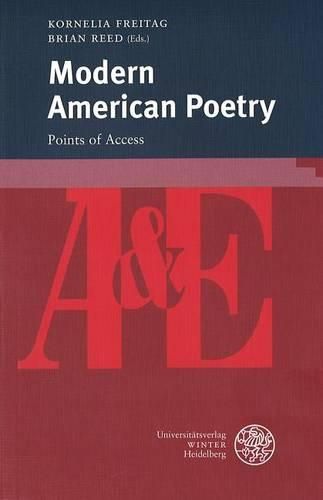Readings Newsletter
Become a Readings Member to make your shopping experience even easier.
Sign in or sign up for free!
You’re not far away from qualifying for FREE standard shipping within Australia
You’ve qualified for FREE standard shipping within Australia
The cart is loading…






How to read - and how to teach poetry? The present volume on ‘Modern American Poetry’ assembles ten essays that distill and share tips, facts, arguments, interpretations, and techniques that a number of German and American scholars believe to be helpful when reading and teaching American poetry. The essays introduce topics such as the poetry of war and postmodern poetic experimentation, dwell on teaching Emily Dickinson, Gertrude Stein, and Frank O'Hara, and relate the experiences of translating texts by the African American poet June Jordan in the classroom. Imagism and confessionalism are re-negotiated while more recent developments, such as slam poetics and South Asian diasporic verse are introduced. All essays share a single goal: to provide ‘Points of Access’ for interested readers and especially instructors to transform an exciting, chaotic, contested field of study into lessons that are enlightening and, ideally, enjoyable.
$9.00 standard shipping within Australia
FREE standard shipping within Australia for orders over $100.00
Express & International shipping calculated at checkout
How to read - and how to teach poetry? The present volume on ‘Modern American Poetry’ assembles ten essays that distill and share tips, facts, arguments, interpretations, and techniques that a number of German and American scholars believe to be helpful when reading and teaching American poetry. The essays introduce topics such as the poetry of war and postmodern poetic experimentation, dwell on teaching Emily Dickinson, Gertrude Stein, and Frank O'Hara, and relate the experiences of translating texts by the African American poet June Jordan in the classroom. Imagism and confessionalism are re-negotiated while more recent developments, such as slam poetics and South Asian diasporic verse are introduced. All essays share a single goal: to provide ‘Points of Access’ for interested readers and especially instructors to transform an exciting, chaotic, contested field of study into lessons that are enlightening and, ideally, enjoyable.